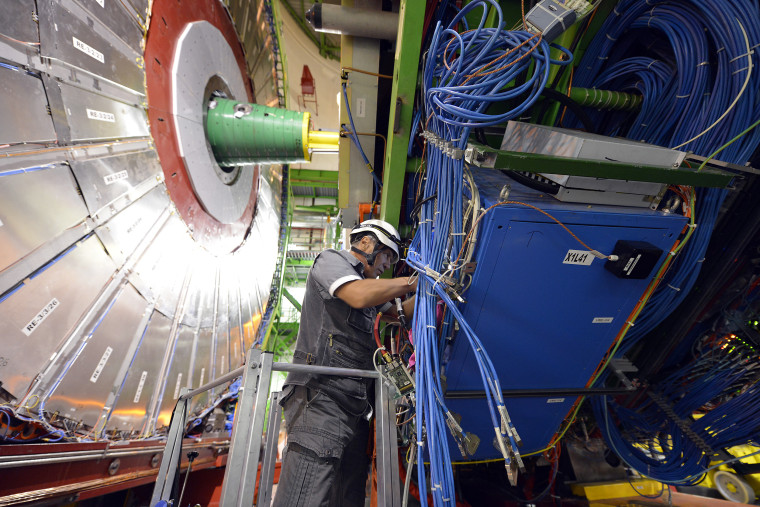Was it a blip, or a breakthrough?
Scientists around the globe are revved up with excitement as the world's biggest atom smasher — best known for revealing the Higgs boson four years ago — starts whirring again to churn out data that may confirm cautious hints of an entirely new particle.
Such a discovery would all but upend the most basic understanding of physics, experts say.
Read More: 'God Particle': New CERN Experiments Shed More Light on Higgs Boson
The European Center for Nuclear Research, or CERN by its French-language acronym, has in recent months given more oomph to the machinery in a 17-mile underground circuit along the French-Swiss border known as the Large Hadron Collider.
In a surprise development in December, two separate LHC detectors each turned up faint signs that could indicate a new particle, and since then theorizing has been rife.
"It's a hint at a possible discovery," said theoretical physicist Csaba Csaki, who isn't involved in the experiments. "If this is really true, then it would possibly be the most exciting thing that I have seen in particle physics in my career — more exciting than the discovery of the Higgs itself."
Read More: LHC Experiment Hints at Possibility of New Particle
After a wintertime break, the Large Hadron Collider, or LHC, reopened on March 25 to prepare for a restart in early May. CERN scientists are doing safety tests and scrubbing clean the pipes before slamming together large bundles of particles in hopes of producing enough data to clear up that mystery. Firm answers aren't expected for weeks, if not until an August conference of physicists in Chicago known as ICHEP.
On Friday, the LHC was temporarily immobilized by a weasel, which invaded a transformer that helps power the machine and set off an electrical outage. CERN says it was one of a few small glitches that will delay by a few days plans to start the data collection at the $4.4 billion collider.
The 2012 confirmation of the Higgs boson, dubbed the "God particle" by some laypeople, culminated a theory first floated decades earlier. The "Higgs" rounded out the Standard Model of physics, which aims to explain how the universe is structured at the infinitesimal level.
